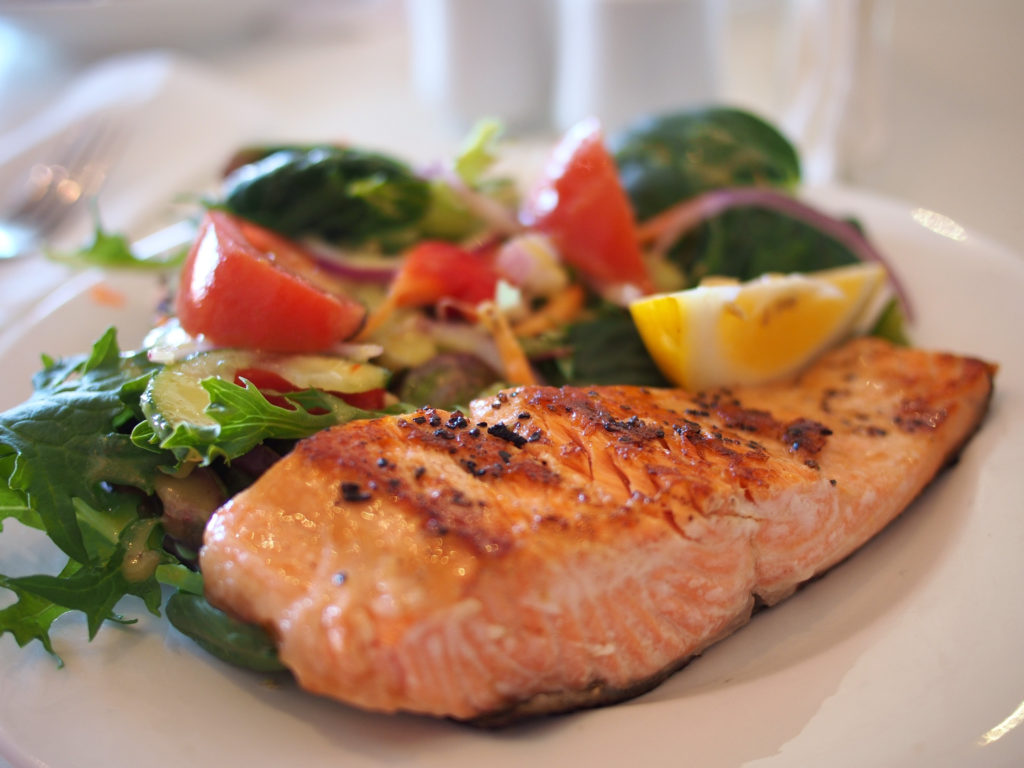What is Vitamin D?
Vitamin D is one of the fat soluble vitamins (the others are Vitamin E, A and K), meaning that it’s transported and absorbed via fat in the body and can be stored in our tissues for later use. Vitamin D from food, sunlight and supplements must be converted to its biologically active form by undergoing a chemical process called hydroxylation first in the liver and again in the kidney. This process leaves us with the active form of Vitamin D, calcitriol.
What does Vitamin D do?
Vitamin D has many roles in the body, but one of the most well known roles is that of calcium absorption. Vitamin D tells the body to absorb more calcium from our food and supplements when calcium levels dip too low. That’s why it’s so important to get enough Vitamin D to keep our bones strong. While it’s part in bone health is fairly common, you might be surprised to learn that Vitamin D is also essential to gene expression (which of our genes get turned off or on), immune function and reducing inflammation. Interestingly, it’s also been studied in connection to reduced cancer risk specifically colon cancer, as well as depression and mood disorders, autoimmune diseases like Type 1 Diabetes and Inflammatory Bowel Disease. Those who are obese have a greater need for Vitamin D as well, which makes it important in metabolic disease as well.
Where do you get Vitamin D?
Vitamin D is found in very few foods. The best sources are oily fish like sardines, mackerel, and salmon, egg yolks and mushrooms. However, it’s very hard to meet the dietary requirements for Vitamin D through food alone. Additionally, Vitamin D is made in our skin when exposed to UV light/sunlight. Sun exposure for 15 minutes a day sans sunscreen on your arms and face in the summer months helps meet your need for those in the Northern U.S.
Can you supplement Vitamin D?
Sometimes, it’s necessary to get your Vitamin D through supplementation. This might be because you are a vegan or vegetarian or live in a part of the world that gets little or not enough sunshine to prevent insufficiency or deficiency. Always get a blood test to determine your baseline Vitamin D levels checked before supplementing. To prevent deficiency and disease many experts now agree that your 25 OH-D level may be optimal at 50 ng/mL. A dose of at least 2,000 IU daily of Vitamin D in a supplement is probably the minimum needed to maintain levels in the absence of any sun exposure. In supplement form, Vitamin D may be consumed as D2 (called ergocalciferol usually from yeast) or D3 (cholecalciferol). There is evidence that suggests that Vitamin D3 raises blood levels more effectively than D2 as it has a longer half life and is preferred for daily dosing. Always consult with your healthcare practitioner before starting any supplement as Vitamin D supplementation may not be appropriate for some.
Sources:
https://ods.od.nih.gov/factsheets/VitaminD-HealthProfessional/
Supplementing Dietary Nutrients: A Guide for Healthcare Professionals. Dr. Thomas G. Guilliams Ph.D. The Pointe Institute. 2014



